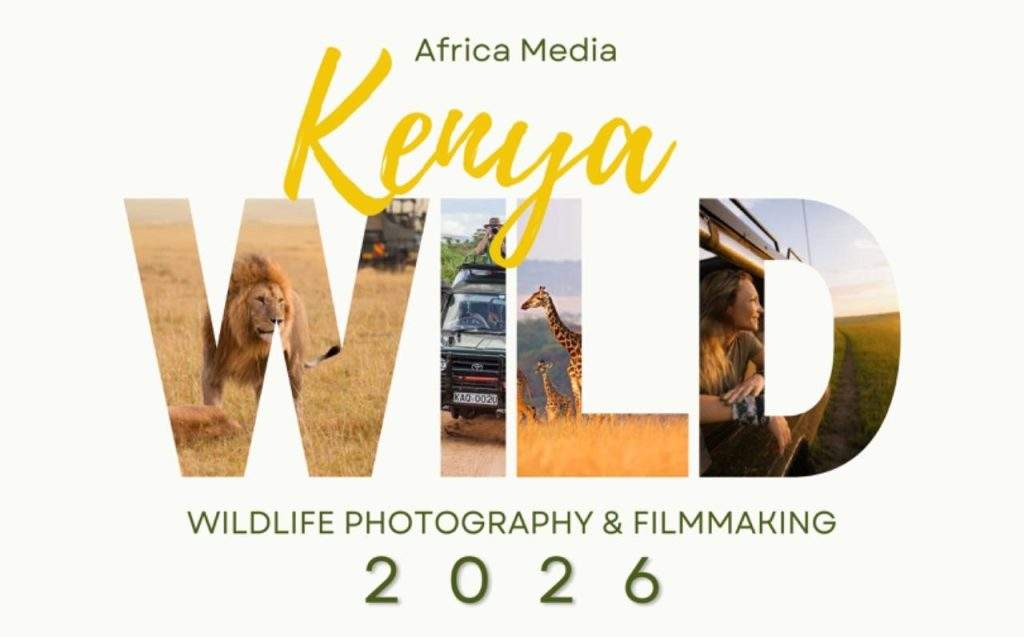
How to become a wildlife television presenter – 9 insider tips
Few jobs appear as romantic as a wildlife television presenter. Getting paid to travel the world and witness incredible sights is the dream of many. Crouching down in front of a rhino to deliver a few lines to a camera can’t be that challenging! Or is it? Having worked on international wildlife documentaries for the last 15 years and having fielded this type of question some 1472 times, here are my thoughts how to be the next big wildlife TV presenter.
If you want to be a wildlife presenter for the sake of being on TV and having a cool job, then your probability of success is about 0.0000001%. The buzz world in the wildlife filmmaking industry for today’s talent is ‘AUTHENTICITY’. Television audiences are sophisticated and want to view real people on a real world ‘wild’ mission. Or to state it a different way, if the cameras were turned off, would you still be doing what you are doing on TV? If the answer is no, then the dreaded commissioning editors will rarely look twice at you, or your show. So, in my opinion, the best route, is to become an authentic wildlife expert and then allow a great producer to document your daily (still awesome) activity.
The top careers to be in to achieve this are:
ANIMAL WRANGLER
For those not inclined to study, but prefer real world expertise, then animal wrangling is a great way to tune your wildlife abilities. Learn how to rid chimneys of vermin; clear car engines of rogue snakes; or relocate wild crocs. Add to this a pair of dungarees, a few missing front teeth and a huge personality… It is only a matter of time before the cameras will find you and you become a wildlife TV presenter. Notable wranglers – Steve Irwin
PRODUCER
With changes in media broadcast platforms and reduced prices of broadcast quality cameras, why wait for a producer to cast you? Invest in yourself and produce your own show. In recent years, expeditions with adventurers pushing themselves to the limits in the wilderness have become increasingly popular. Yes, self-shot footage is often grainy, backlighted and shaky. However, the authenticity associated with a ‘balls to the wall’ adventure makes for great content that will attract the commissioners. Notable self-producers – Ed Stafford
CONSERVATIONIST
If you love animals and conservation, work with an organisation that allows you to fulfil your ambition of saving animals. Make sure it’s a organisation that allows you to develop skills in working with animals (e.g. a rehab center in the Congo). Rather this than a job on the 31st floor soliciting “Adopt an animal” donations. Being at the ‘coalface’ of conservation efforts will put you in a good place to connect with wildlife producers. You’ll also build skills needed to provide enticing content for television. Notable conservationists – Eugene Cussons
Download FREE eBook featuring 18 International scholarships to fund overseas experience travel

TOURIST GUIDE
By this I mean ecotourism guide, showing people wonderful creatures in the wild. A career as a dive master, snake handler, croc guide, or safari guide fills you with knowledge about nature and the animals in it. Talking with clients daily gives you the ability to hone your communication skills. Finally, hosting film-making productions allows you great networking opportunities. Notable guides – Andre Hartman
PRODUCTION COMPANY INTERN
Interning at a wildlife production company has been the stepping stone for a number of presenters. Here you learn the industry; how producers think; what commissioning editor are looking for today; what makes good talent and what makes terrible talent. Also, you may just end up in the right place at the right time. Your smiling charismatic personality might be standing right in front of the producer.
CELEBRITY
Few celebrities bring authentic expertise to a show. But they do bring something else – ratings! And rating is what gets the commissioning editors up in the morning. So if you already have a following of a few million fans, you grace the cover of tabloids and you want to take a nice trip to Africa to see some crocs, then make every producers dream come true and offer your services as a wildlife presenter. Realise you will probably take a huge pay cut, you will not be ‘quite so glam’ for a week or two, but hey everyone loves seeing a celeb up to their armpits in a mud hole right? Notable celebs – Johanna Lumley and Leonardo di Caprio
VET
You can even become a wildlife TV presenter as a vet. Vets are always interacting with wildlife (including domestic animals), they play with cool gadgets like dart guns and scalpels, and are frequently in the front line for dangerous encounters. They are on a noble quest. All this adds up to great entertaining TV. Notable vets – Steve Leonard
BIOLOGIST
The largest pool of wildlife TV presenters or talent have natural science backgrounds. Scientists spend years developing a deep understanding of the natural world that gives them genuine authentic expertise. Scientists have a quick route to network with wildlife film producers as they often get called upon to give scientific input into documentaries, a perfect stepping stone to bigger adventures as a wildlife presenter. Notable Biologist – Dr. Brady Barr
WILDLIFE CAMERA OPERATOR
Generally prefer being on the backside of the camera. But the industry often demands to see the challenges that go into capturing the video images that grace our screens. Numerous shows today feature the cameraman as a main character or presenter. So grab a camera and start shooting, offer to do a couple of behind the scenes interviews, and- hey presto – doors will open. Notable camera operator – Andy Casagrande
95% of wildlife characters and presenters you see on TV are sourced from one of these nine careers. They tick the boxes of what commissioners are searching for in today’s media marketplace, the most important being AUTHENTICITY. Become a wildlife expert, develop unique skills and live a life that is wild. If you achieve this then you may not need to find wildlife presenting, it may just find you. If it doesn’t, you will be living a great life full of passion anyway, and TV is after all, just TV.
Blogger Profile - Ryan Johnson
Ryan is a well known wildlife film maker and shark biologist located in MosselBay, South Africa. His work is highlighted as researcher, television host, camera operator and scientist on shark and marine documentaries for international broadcastors including National Geographic Network.
Kickstart your wildlife media career!
Find your perfect wildlife media speciality program





